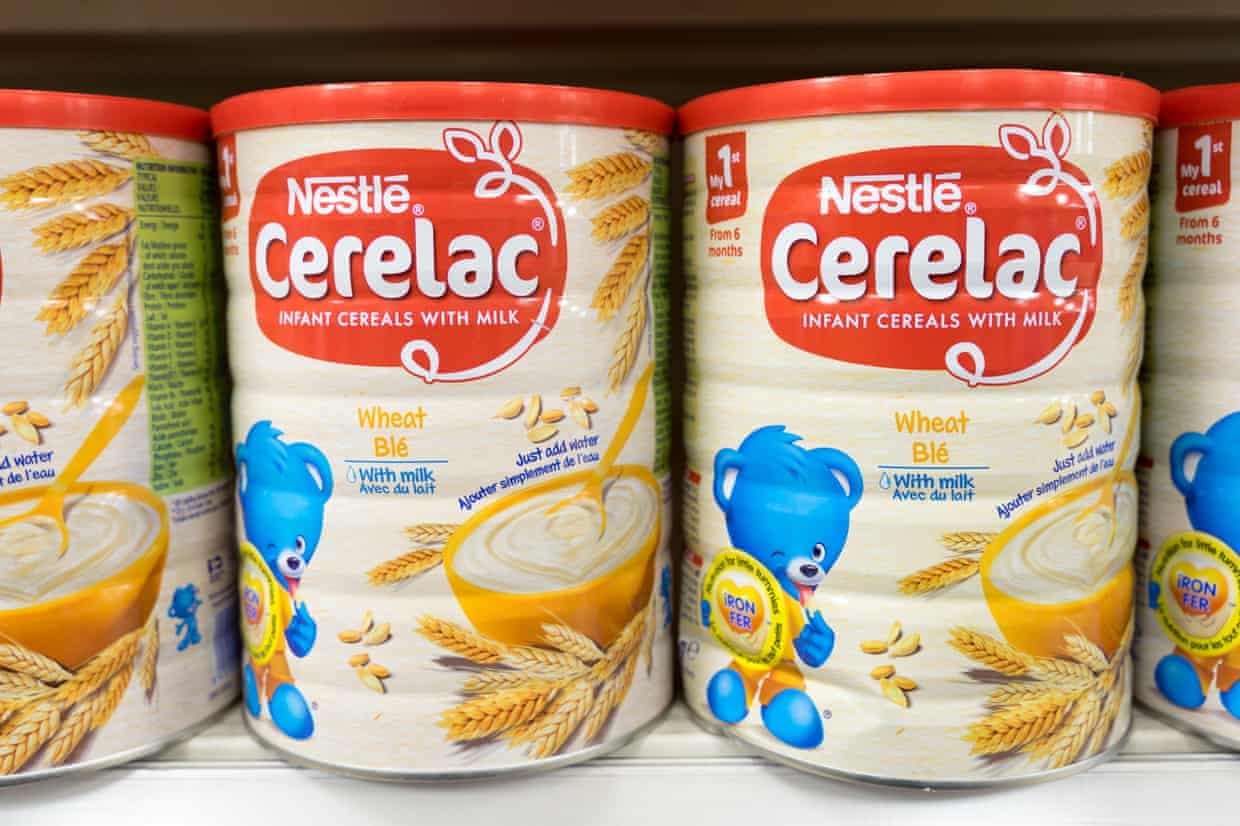In a damning exposé, a joint investigation by Public Eye and the International Baby Food Action Network (IBFAN) has uncovered a disturbing practice by food and beverage giant Nestlé. The report found that Nestlé adds significant amounts of sugar and honey to its infant milk and cereal products sold in developing countries, while keeping those products sugar-free in its European markets.
The investigation, which analyzed 150 Nestlé products across Asia, Latin America, and Africa, revealed that “almost all” of the company’s Cerelac wheat-based infant cereals in those regions contained added sugar equivalent to a sugar cube per serving. The highest sugar content was detected in the Philippines, Nigeria, and Senegal, reaching up to 7.3 grams per serving.
Similarly, Nestlé’s Nido powdered milk products aimed at toddlers in these markets contained nearly 2 grams of added sugar per serving, with some samples in Panama, Nicaragua, and Mexico recording as high as 5.3 grams.
Shockingly, the report found that Nestlé does not add any such sugars to its equivalent products sold in its home market of Switzerland, as well as other major European countries like Germany, the UK, and France.

“This double standard is unjustifiable and problematic,” said Laurent Gaberell, Public Eye’s agriculture and nutrition expert. “Exposure to sugar at an early age can be very problematic, increasing the risk of obesity, diabetes, and other chronic diseases later in life.”
The World Health Organization’s European guidelines explicitly recommend that no sugars or sweetening agents should be used in food for children under the age of three, a recommendation that is internationally applicable.
Nestlé, the world’s largest consumer goods corporation, defended its practices, stating that its products comply with local regulations and that there are “slight variations in recipes” due to availability of local ingredients. However, the report highlights that many countries do not even require disclosure of added sugars on product labels.
The investigation also uncovered Nestlé’s extensive use of “mom influencers” and health professionals in paid partnerships to promote its sugary baby products as healthy and beneficial for child development – a tactic that the researchers say “misleads” unsuspecting consumers.
“The only reason why Nestlé does it is basically because they know that kids like sugar and they will come back and want their product,” said Gaberell. “It’s just to increase the sales of their product.”

This troubling exposé sheds light on Nestlé’s questionable marketing practices and the company’s apparent disregard for the health of infants and young children, particularly in the developing world. As the obesity crisis continues to escalate globally, this revelation raises urgent questions about corporate responsibility and the need for stricter regulations to protect the most vulnerable consumers.


0 Comments